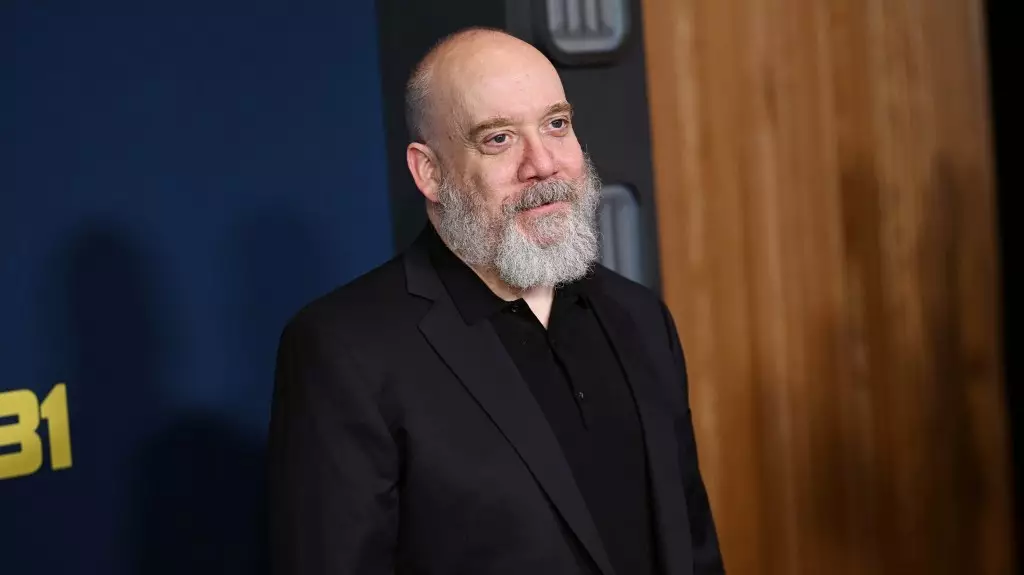The pop-culture landscape has witnessed the triumphant resurgence of beloved franchises, but few have done so against the profound shadow of loss. Paul Giamatti’s reflections on the upcoming *Downton Abbey: The Grand Finale* highlight not just the continuation of a much-loved series, but an emotional journey intertwined with mourning and homage. The recent passing of Dame Maggie Smith casts a deep pall over the excitement, turning what should be a jubilant reunion into a poignant farewell. Giamatti’s words resonate with a melancholic weight, yet they also encapsulate a fascinating duality: creative work mourning a foundational figure while generating new narratives that honor her legacy.
Giamatti’s appreciation for Smith as an actress and a person is palpable; he notes that her absence is a “huge loss” yet emphasizes how her spirit permeates the film. This commentary begs the question: Can fiction heal grief? The answer may lie in the rich tapestries of storytelling that captures complex emotions like love, resilience, and loss—elements that *Downton Abbey* has always thrived on. In many ways, having characters lament their lost matriarch mirrors the real-life sentiments of the cast, creating a unique and powerful synergy that draws audiences deeper into the narrative.
The Surprise Boost to Narrative Depth
Giamatti acknowledges an intriguing twist: despite his previously minor role, he now finds his character, Harold Levinson, occupying a significant space in the upcoming film. This narrative development unearths one of the hidden strengths of long-running stories—the depth afforded characters through multi-generational arcs. The fact that Giamatti feels surprised yet proud of his expanded role underscores a critical dynamic in modern storytelling: the power of characters to evolve and resonate in unexpected ways.
While Giamatti may not have originally seen Harold Levinson’s significance, it’s a testament to the writers’ ability to craft layers within the plot, illustrating that every character matters in the grand scheme of storytelling. It raises the stakes, offering not just fan service, but a carefully structured narrative that promises emotional satisfaction while exploring the intricate relationships and societal shifts of the time. Audiences, therefore, may find themselves invested in the characters’ personal journeys, celebrating their triumphs and mourning alongside them.
The Touchstone of Grief in Creative Endeavors
Furthermore, the film operates as a vessel for expressing collective grief—a sentiment echoed by Gareth Neame, the executive producer. His commentary about the “added poignancy” due to Smith’s passing speaks volumes about the intertwined relationship between creators and performers. When art is crafted amid loss, the result can be a raw, authentic representation of resilience. In this context, we must ask ourselves how the art of storytelling can shed light on our vulnerabilities and how humor and love present in the narrative beautifully juxtapose sorrow.
As we prepare to experience *Downton Abbey: The Grand Finale*, it’s vital to recognize how the film does not merely serve as entertainment; rather, it stands as a tribute to the often-unseen struggles behind the scenes. It beckons us to reflect on how art can illuminate the human condition, transforming personal grief into universally relatable themes. Lamentation becomes a celebration, and absence morphs into presence—a lovely paradox that encapsulates the essence of what *Downton Abbey* has always represented.
The Collective Irish Goodbye
The finality of this particular installment holds significance that transcends traditional storytelling. Instead of merely providing closure, the film emphasizes the connections that bind characters—and audiences—together during trying times. It’s a reminder that acknowledging loss can lead to deeper meaningful engagements rather than simply moving past it. The love and respect shared among the cast now become meaningful artifacts, woven into the fabric of the show’s rich narrative structure.
In an entertainment industry often centered around superficial escapism, *Downton Abbey: The Grand Finale* challenges this notion by forcing both its characters and its viewers to confront the realities of loss and memory. Thus, the excitement for the film should be tempered with an understanding of the emotional journey it embodies. What emerges is a deeply insightful work that provides audiences with a mirror reflecting both the luminance of life and the shadows of absence—a true testament to the spirit of the legendary dame who once adorned the screen.


Leave a Reply